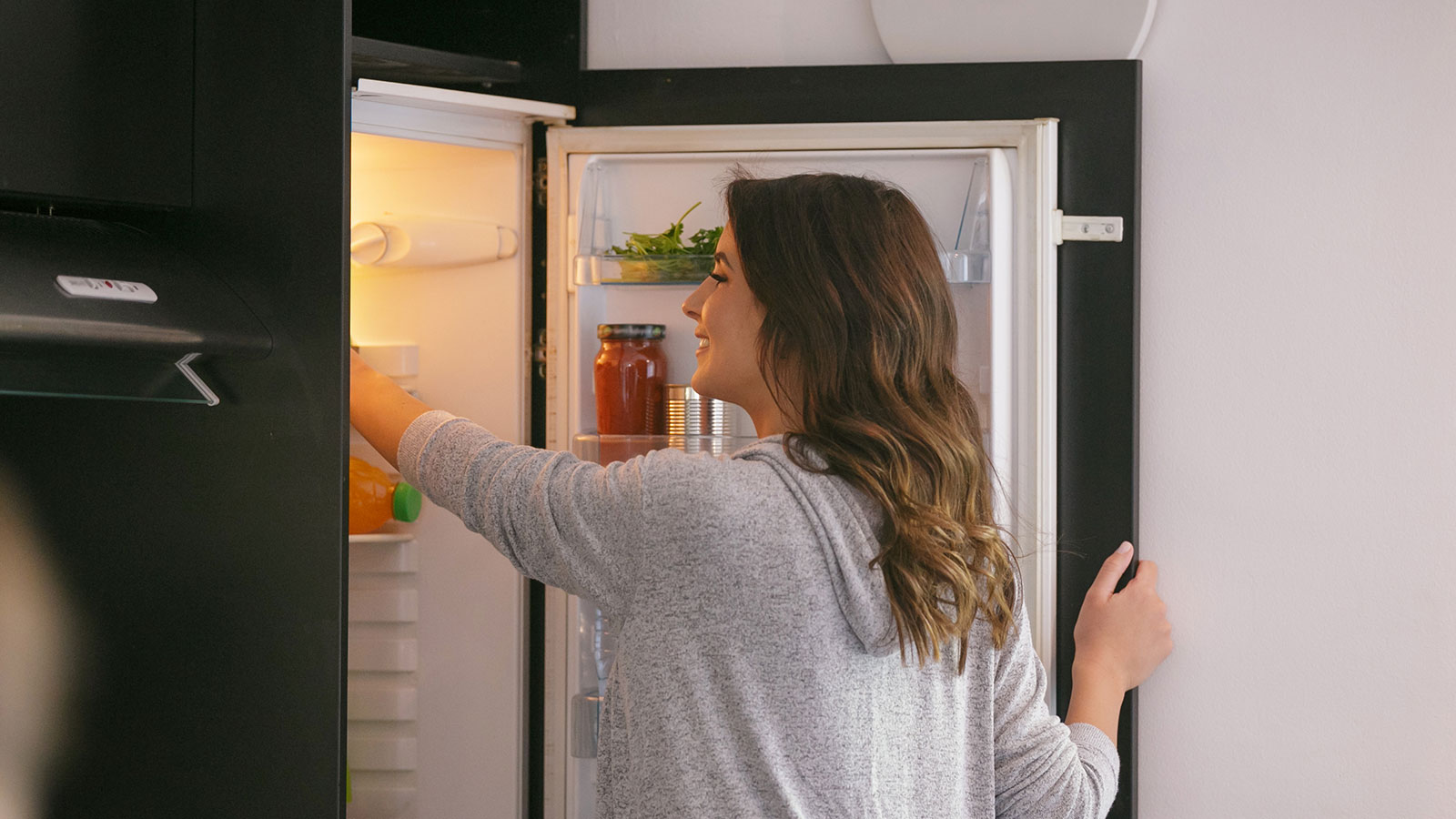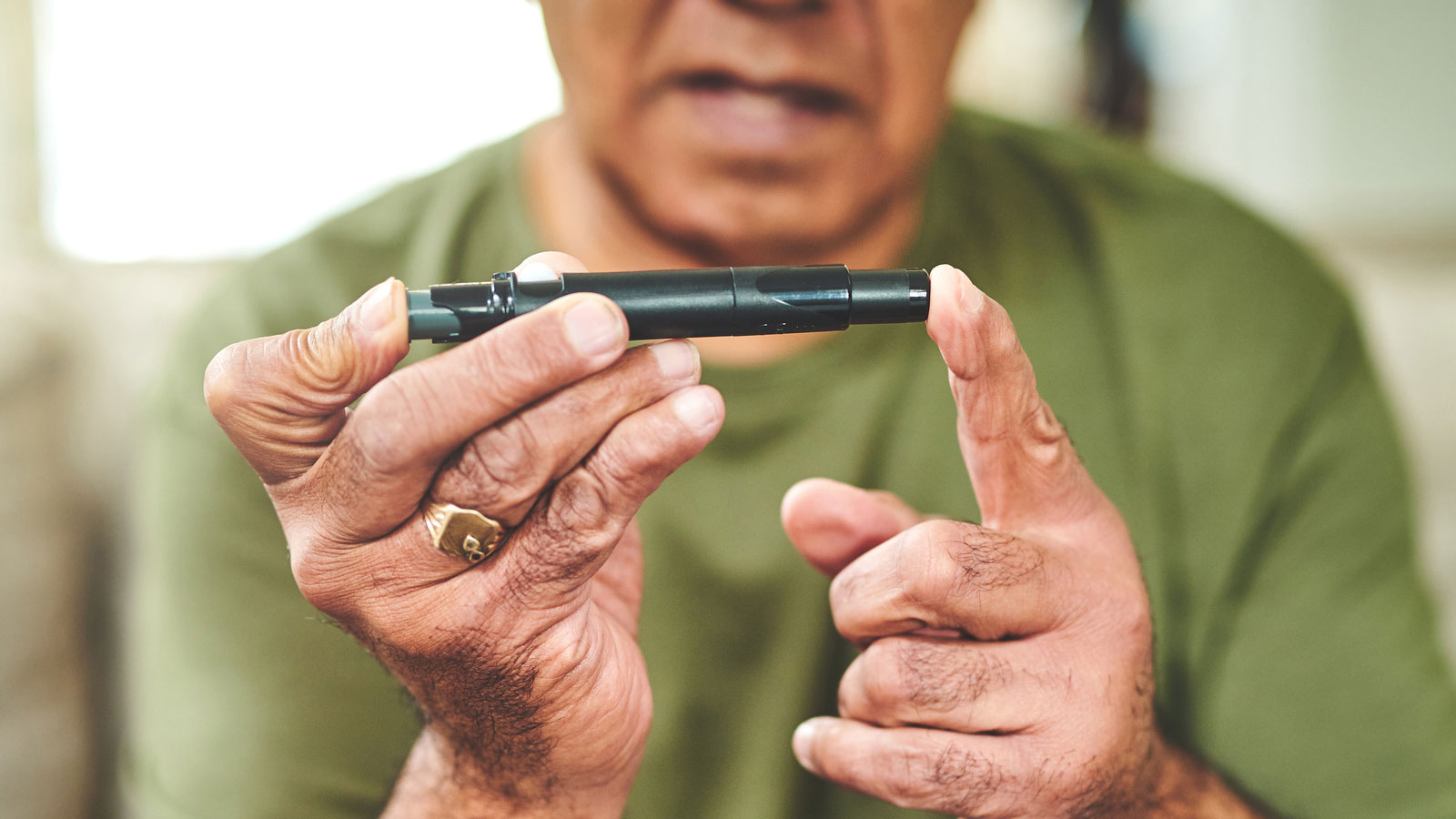How to Manage IBS Symptoms and Feel in Control Again
If you’re 1 in 5 Americans experiencing IBS, discover relief tips, ways to manage symptoms, and strategies to take back control of daily life.

By Param Patel, MD, Gastroenterologist, Virtua Gastroenterology
One moment you’re going about your day, and the next, IBS symptoms like cramping or bloating demand immediate attention.
If you're like the one in five Americans who experience irritable bowel syndrome (IBS), you know the difficulties this condition can cause in your daily life.
Second only to the common cold, IBS is a leading cause of missing work and school. IBS results in almost three million doctor visits a year, but those numbers could be even higher if more people stood up to their IBS fears. Millions avoid seeking treatment because they are too embarrassed to discuss their symptoms or feel that there is no solution.
How do I know if I have IBS?
IBS is a complex disorder of the lower intestinal tract characterized by abdominal pain and constipation or diarrhea. Most commonly, either constipation or diarrhea will be the dominant symptom, but some will experience a mix of the two or alternate between the two. Lastly, IBS can be worsened by emotional stress.
The exact cause of IBS is not known, but it is likely that IBS results from changes in the communication signals between nerves that control muscle contractions in the colon and the nerves of the brain. IBS can occur at any age, but often begins in adolescence or early adulthood. It is also more common in women.
What are the symptoms of IBS?
Symptoms can range from mild to severe, including:
- Abdominal distention
- Abdominal fullness, gas, bloating
- Abdominal pain or tenderness that comes and goes, disappears after a bowel movement and/or occurs after meals
- Chronic and frequent constipation, usually accompanied by pain
- Chronic and frequent diarrhea, usually accompanied by pain
- Emotional distress
- Depression
- Loss of appetite
- Nausea and vomiting
When should I see a doctor for IBS symptoms?
Making a gastroenterology appointment is important if you experience IBS symptoms. A specialist can provide guidance, rule out more serious conditions like inflammatory bowel disease (IBD), and help identify treatment strategies for your digestive health.
Most of the time IBS can be diagnosed through symptoms, but tests and exams are needed to help rule out possible causes such inflammatory bowel disease, which includes Crohn's disease or colitis. Some of the tests and exams include:
- Blood tests
- Stool samples
- Sigmoidoscopy
- Colonoscopy
What foods or other triggers should I avoid if I have IBS?
IBS is a chronic condition that can't be cured, but avoiding these triggers can help you manage the symptoms:
- Caffeine
- Red meat
- Smoking
- Alcohol
- Artificial sweeteners
- Carbonated beverages
- Dairy products
- Fried food
- Stress
Your gastroenterologist may also recommend medications or supplements to help treat your IBS symptoms, including:
- Fiber or fiber supplements that help loosen stool and relieve constipation
- Anti-diarrhea medications such as Imodium
- Anti-spasm medications that help relieve abdominal pain such as dicyclomine and hyoscyamine
- Low dose antidepressants that specifically target the chemicals in the bowel that lead to pain, such tricyclic antidepressants
Is your gut health in check?
If stomach issues affect you often, it may be time to see a specialist. Call 888-847-8823 or request an appointment with a Virtua Gastroenterologist.
There's So Much More to Explore
Discover expert insights, inspiring stories, health tips, and more by exploring the content below!

Can Your Gut Health Affect Your Heart?

At-Home Colon Cancer Tests vs. Colonoscopy: Which Screening Option Is Right for You?

8 Signs It's Time to See a Gastroenterologist

How the Unique Stages of a Woman's Heart Affect Her Health

HeartTalk Magazine

How Weight-Loss Surgery Can Improve Diabetes, Heart Health, and More

6 Tips for an Easier Colonoscopy Prep

Knee Replacement Rehab: 7 Exercises to Restore Your Strength and Range of Motion

COPD vs. Asthma: Understanding the Difference in Symptoms

Bioidentical Hormone Replacement Therapy Pellets: Relief for Menopause and Andropause Symptoms

Why Is Sex Painful During Pregnancy? Pelvic Congestion Syndrome Explained

Don't Drink Alcohol? You Could Still Get Fatty Liver Disease

What Is the Difference Between Palliative Care and Hospice Care?

How to Exercise Safely with Asthma: Tips, Triggers, and Rescue Inhaler Use

How to Relieve Bloating Fast: Simple Tips for Quick Comfort

COMFORTing Tips to Avoid Holiday Heartburn

How to Tell the Difference Between Cold, Flu, and COVID-19

Jill Travels From Delaware to South Jersey for Advanced Lung Care

4 Exercise Tips to Help You Reverse High Blood Pressure

From Exhaustion to Empowerment: Tracy's Hormone Replacement Therapy Success Story

Why on Earth Am I Always So Cold?

Timely Heart Care During a Heart Attack Helps Joe Feed the Community

Allegra Is Thriving With Crohn's Disease

The Best and Worst Foods for Acid Reflux

How to Manage IBS Symptoms and Feel in Control Again

5 Types of Lung Disease: Symptoms, Causes, and Prevention Tips

Foods to Enjoy and Avoid for GLP-1 Heartburn

Is the Gurgle in Your Gut Telling You Something?

3 Reasons Why Now's the Time to Find Relief From Varicose Veins

Baseball Coach Turns Male Breast Cancer Surprise into Personal Mission

The Brain Health Checklist: 11 Questions Everyone Should Ask

From Caregiver to Patient: Robotic Surgery Relieves Teresa's Knee Pain

How to Get and Stay Healthy This Fall

How to Reverse Prediabetes and Prevent Type 2 Diabetes

Young Breast-Cancer Survivor Has New Hope for Healthy Future

Is Cancer Hereditary? What You Need to Know About Your Genetic Risks

Tara's Story: From Debilitating Uterine Fibroid Pain to a Half-Marathon Medal

Is Your Post-Pregnancy Belly Bulge a Sign of Diastasis Recti?

IBS and Alcohol: Can You Still Enjoy a Drink?

Focus on Mental Health Is Key Part of Andrew's Weight-Loss Journey

What You Need to Know About Epilepsy

'Feeling Joy Again': ECT Brain Stimulation Therapy Restores Ashley's Well-Being

Not Just for Wrinkles: Botox Injections Promote Improved Bladder Control

Why Coffee Makes You Poop: A Comprehensive Guide

How to Stay Cool and Prevent Heat Illness All Summer Long

What Happens to Your Body When You Don't Get Enough Sleep?

5 Key Facts About Proton Therapy for Cancer Treatment

Mood Swings vs. Mood Disorders: Know the Signs and Get Help
Are emotional ups and downs disrupting daily life? Learn common signs of mood disorders, and when to talk to a doctor about diagnosis and treatment options.

4 Foolproof Pelvic Floor Strengthening Exercises for Women

What to Expect During Perimenopause

Protect Yourself From Tick Bites and Lyme Disease

6 Tips to Tame Your Spring Allergies

Do You Know the Signs and Symptoms of Uterine Fibroids?

How Are Uterine Fibroids Treated?

How Do You Manage the Side Effects of Weight-Loss Medications?

A Woman’s Four-Step Guide to Fight Back on Back Pain

What You Need To Know About Carpal Tunnel Syndrome

The Truth About Menopause, Weight Gain, and Belly Fat

Shedding Light on Lesser-Known Menopause Symptoms and Solutions

Debunking The Myths About Vaginal Dryness
Inside Look at Blood Vessels Aids PAD Treatment
Denise Davis: Pay Attention to Your Heart Health

What You Need To Know About Stroke Treatment

10 Smart Ways to Manage Your Diabetes

Signs You May Have Chronic Kidney Disease

5 Essential Winter Foot Care Tips When You Have Diabetes

Sweet Music: Trust, Teamwork Save Justin from Heart Attack

Complex Heart Surgery Nets James a Lifelong Friend

Hepatitis C Kidney Transplant a Blessing For Lee Manns

7 Reasons Why You Want Your Surgeon to Be an Expert in Robotics

Colitis Symptoms Under Control, Jennifer Is ‘Living My Best Life’

How Do I Care for a Wound that Won't Heal?

Five Back Pain Risk Factors That You Should Know

Is My Back Pain Normal, or Is It Spinal Stenosis?

Augmented-Reality Surgery Has Bobby Back on Stage, Rocking His New Hip

Gut-Healthy Recipe: Turmeric Chicken With Asparagus

Gut Health Recipe: Chipotle Salmon and Sweet Potato Bowl

Robotic Hernia Surgery Combines Innovative Techniques With Faster Recovery Times

How Does Breast Density Affect Your Mammogram?

Menopause: New Insights Into the Power of Hormone Replacement Therapy

Signs You Should Get Treated For Vein Problems

One New Heart Valve Saves Two Lives in the Tritten Family

What You Need to Know About Heart Failure
Lung Valve Surgery Relieves COPD, Emphysema Symptoms

Lung Screening, Robotic Technologies Get Pat Kicking Up Her Boots Again

Breast Cancer Diagnosis Inspires Catherine to Help Others

Jasmine’s On-Air and Pain-Free After Gallbladder Surgery

When Should I See a Doctor About My Knee Pain?

Quick Action Leads to Jesse's Recovery From Stroke

A Non-Athlete’s Guide to Shoulder Overuse Injuries
Shoulder problems aren’t limited to athletes. Virtua orthopedic surgeon Sean McMillan, DO, explains shoulder overuse injuries and prevention in this article.

Put Lower Back Pain Behind You With This Ten-Step Guide

Wide-Awake Hand Surgery Speeds Recovery, Puts Control in Patients' Hands

South Jersey Veteran Thrives After Cross-Country Kidney Donation

3 Ways to Avoid Knee Pain

When Should I See a Doctor for My Hip Pain?

When Should I See a Doctor About My Shoulder Pain?

Is My Back Pain Normal, or Is It Sciatica?

Is My Back Pain Normal, or Is It a Herniated Disk?

When Is It Back Pain, and When Is It Something More?

Watchman Heart Device: a Technological Breakthrough for Blood Clot Prevention

Albert's Emergency Cardiac Surgery Is a 'Story of a Lifetime'

What Can I Do Right Now About My Aching Back?

How Do I Get Rid of This Back Pain for Good?

When Should I Be Worried About My Neck Pain?
Advanced Heart Failure Therapies Get Bernadine Back to Full Speed

Sarah Wins Back Her Health After Crohn's Disease Diagnosis

Overcoming Addiction, Philip Now Sees More Positive Side to Life

Gut-Health Recipe: Shrimp and Vegetable Stir Fry

Gut-Health Recipe: Berry Yogurt Parfait

Gut-Health Recipe: Avocado and Black Bean Salad
Firefighter's Successful Lung Cancer Care at Virtua
A Lung Screening Put Teresa Back in the Race

A Breast Self-Exam Saved Kristen's Life

Early Treatment is Best to Relieve Hemorrhoid Symptoms

The Top 10 Foods For A Healthy Diabetes Diet

Keeping the Beat: Advanced Heart Surgery for Aortic Aneurysm

Are You At Risk For Chronic Kidney Disease

Local Pastor Makes Kidney Health Mission of Ministry

What’s the Difference Between Type 1 and Type 2 Diabetes?

All for Bear: Dan Loses Weight to Be His Son’s Kidney Donor

Hyperbaric Wound Therapy Puts Joette Back in Motion

Robotic Hernia Repair Renews David's Active Lifestyle

